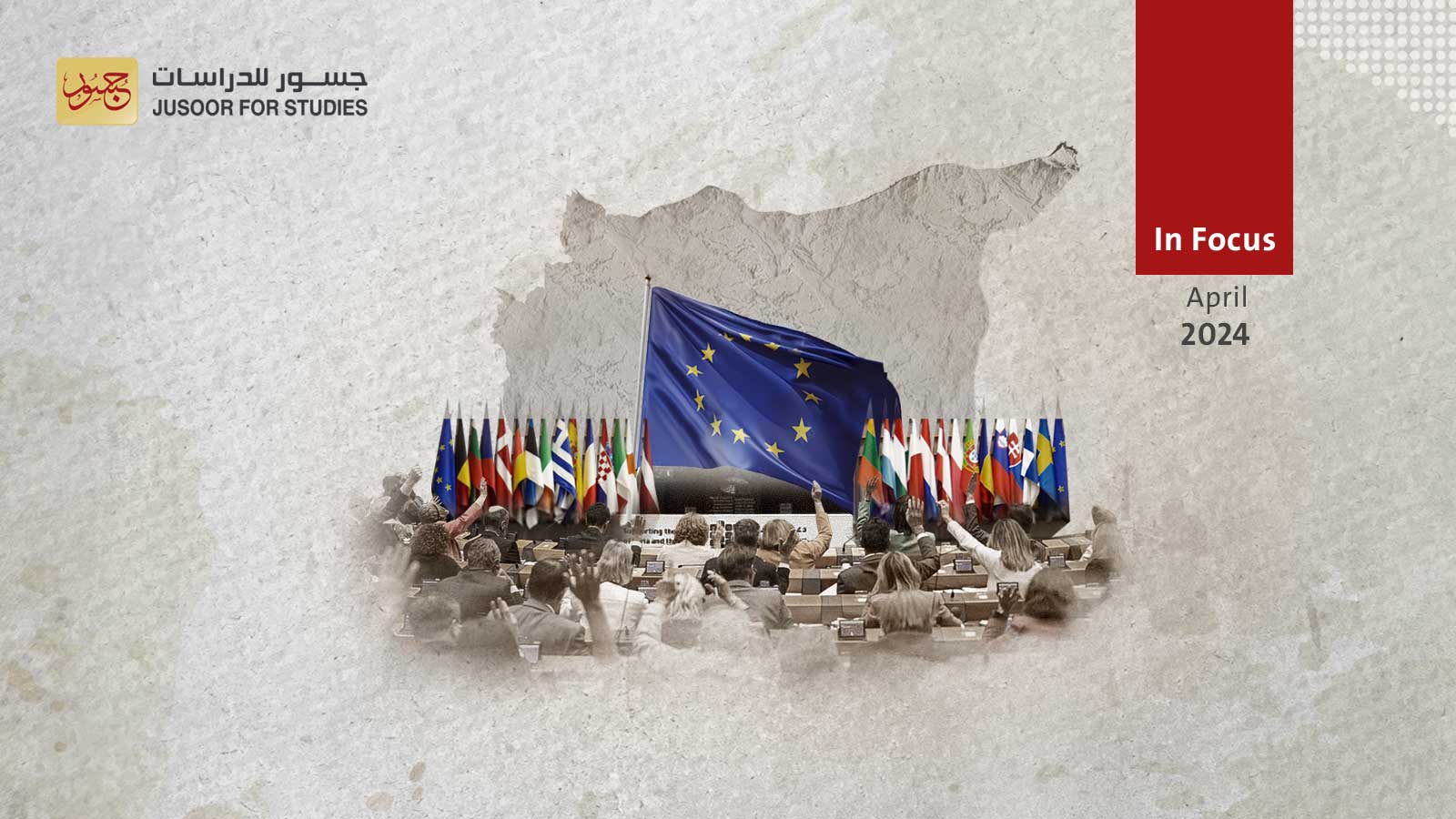EU Conference Makes Little Progress on Solutions for Syria
In late April, the European Union hosted its eighth Brussels Conference on “Supporting the future of Syria and the region”. The gathering aimed to strengthen Syrian civil society politically and to mobilize funding and other forms of support for residents of Syria, refugees, as well as host communities in neighboring countries.
The conference was an opportunity for dialogue and discussion between a large number of Syrian delegates from various governorates and host countries outside the country, with the aim of empowering civil society in the political process.
This chimes with calls by both the United Nations’ Special Envoy and the French Envoy to Syria Brigitte Curmi for the regime and the opposition to take a new approach to implementing UN Security Council Resolution 2254 of 2015, in order to push the frozen political process forward, reconsider the resolution and adapt it to the reality in 2024 in order to give civil society a more influential role in the political process.
These efforts to empower civil society in the political process, whether within the current framework or as part of a possible future track, contrast with the clear inability of the West and the UN to force parties to the conflict to implement Resolution 2254. This has pushed them to adopt new proposals based on continuous efforts to implement its outcomes through dialogue.
The conference showed that Syrian civil society has an opportunity to engage in dialogue and consider solutions in isolation from the vested interests of the various de facto authorities in various parts of Syria, as well as the possibility of using such meetings to foster “Syrian-Syrian” dialogue and present new proposals for a solution to the conflict.
That said, the dialogue may be undermined by with attempts by local authorities in Syria to exploit civil society. The regime, in particular, is blatantly seeking to use organizations and individuals in areas under its control to help finance its own deficit and deceive the international community into extending support, even as it continues to resist making any concessions on a political solution.
In other words, the regime wants to shift the burden of its failures and its political, governmental and economic impotence onto civil society, by persuading donors to provide funds for the services, education, health and infrastructure projects, the Syrian state has failed to provide.
Participants at the conference spent most of their time there analyzing and describing the situation in Syria, stopping short of dealing with the main theme of the gathering: how to support Syria and its people into the future, the tools and strategies for doing so, and what local and international actors should do—as opposed to past actions that have failed to meet Syrians’ needs on the ground.
The deteriorating situation in Syria may have been one reason why the dialogue focused largely on the past and failed to move on to the country’s future needs. However, most of the blame goes to the regime, which dragged the country into the situation it faces today, continues to obstruct any political solution, and refuses to modify the behavior of its repressive security agencies. All this hinders the international community’s efforts to address the issues of detainees and missing persons, and perpetuates the image of Syria as an unsafe and unstable country.








